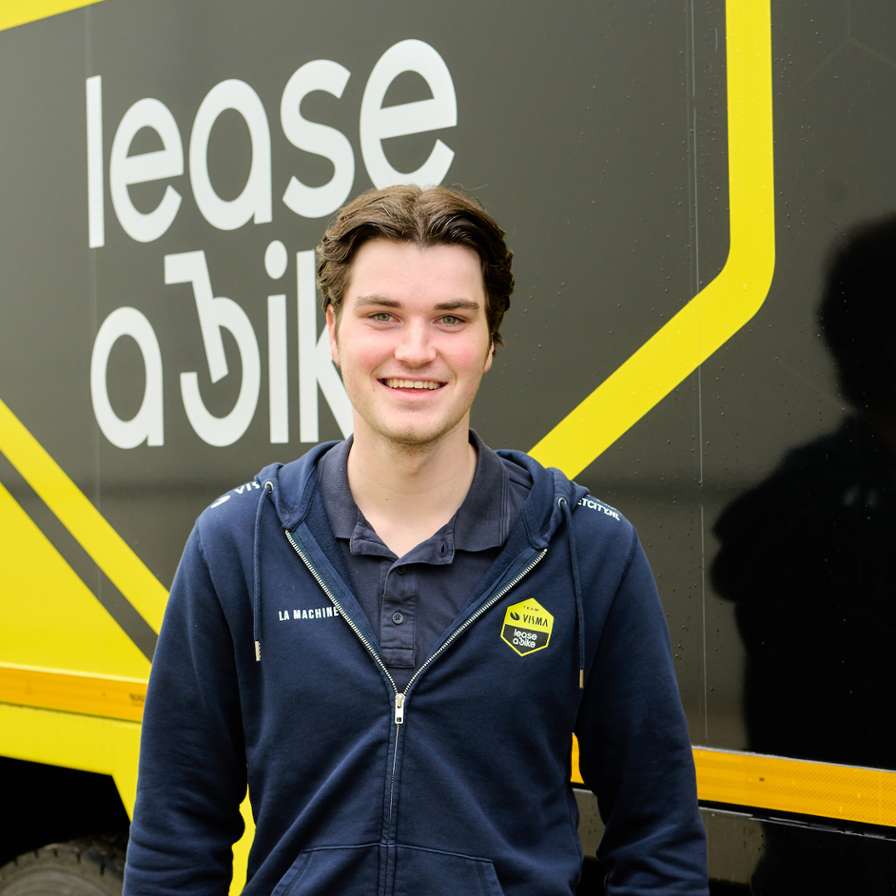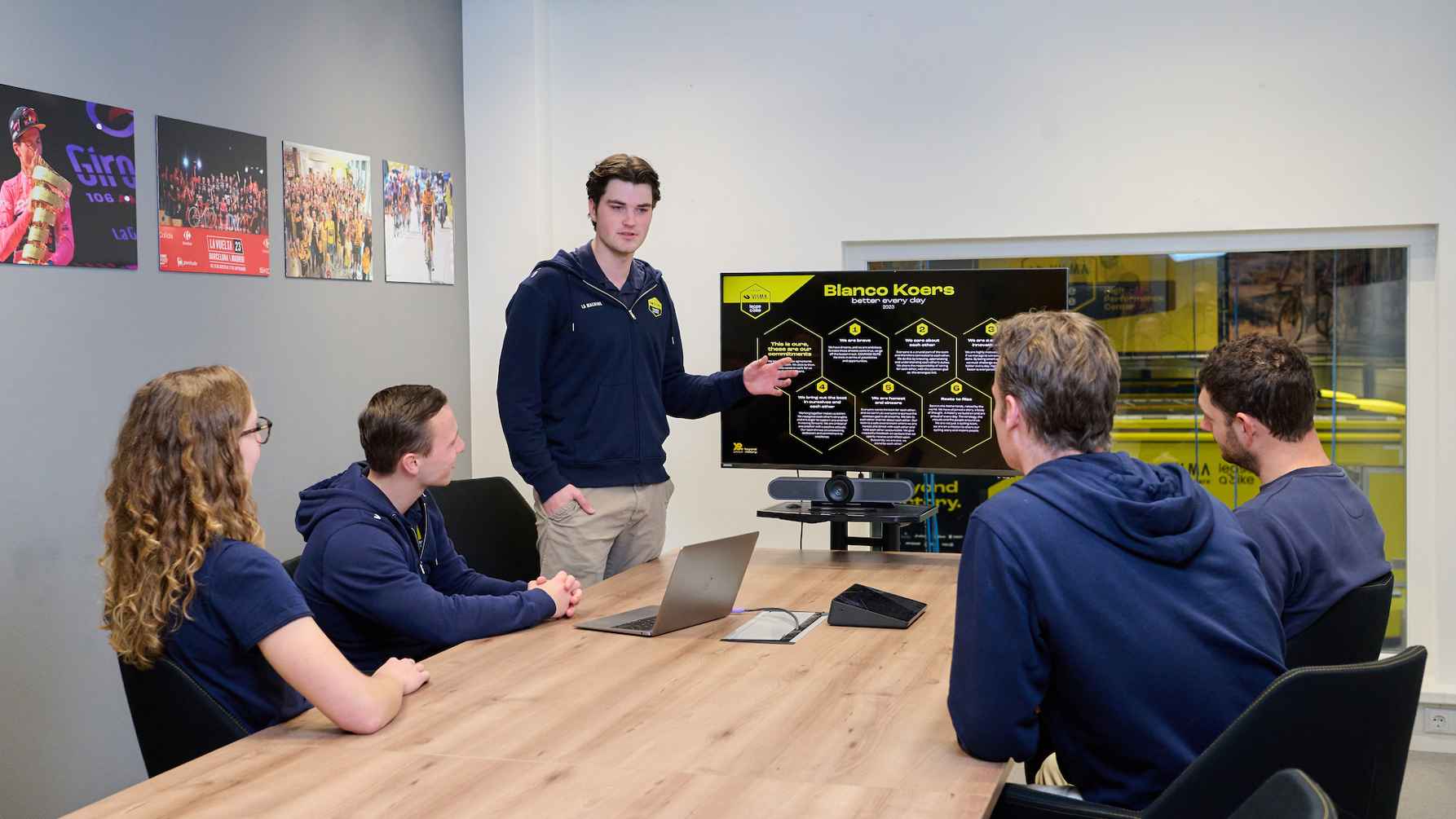Master Sport Business & Leadership
master's, full-time, 1 year
Thom did his consultancy challenge for Team Visma | Lease a Bike
MSBL graduate

'The chance to work with top sport organisations and tackle real-world business challenges makes this Master unique'
Thom shares how the Master Sport Business & Leadership helped him grow as a consultant in the sport industry. He explains what he learned, how the programme supports career development, and why real-world projects matter.
A one-year investment for the rest of a career
‘I wanted to deepen my understanding of the sport industry and build leadership skills that support its growth. The link between business and sport fascinates me. Organisations use strategic leadership, innovation and commercial opportunities to drive success. This programme fits my ambition to play a key role in the business side of sport and help organisations increase their impact.
I see this Master as a one-year investment with long-term value. By choosing a higher degree in sport, I set myself apart from other sport students and position myself as a future leader. My goal is to help sport businesses grow by using innovative strategies and creating sustainable success.’
Essential skills for a career in sport
‘The Bachelor’s programme Sportkunde gave me a strong base in sport management, policy and innovation. It showed me how sport contributes to society. The focus on practical learning through internships shaped my professional identity.
From the first year, I worked with different sport organisations. I could use theory in real projects. These internships improved my teamwork, strategic thinking and adaptability. These skills are crucial in the fast-moving sport business. The experience also helped me position myself in the Master and in my consulting tasks. I could add value to client projects from day one.’
Insights from top executives in sport
‘One key insight I gained is how sport businesses work at the crossroads of passion and commercial success. Organisations must balance financial health with fan engagement, innovation and strong leadership.
Guest lectures from executives in major corporations and sport organisations were important learning moments. These experts shared knowledge and real examples. They showed how to use these insights in consultancy projects. The lectures helped me understand the complexity of leadership and business in sport.
A highlight was our trip to Lausanne, the capital of sport. We visited the International Olympic Committee, FIBA, ECA and UEFA. We learned how global sport governance works and spoke with leaders who shape the industry. The trip also strengthened the group dynamic and made the experience even more valuable.’
From student to consultant
‘Team Visma | Lease a Bike is a Dutch cycling team that competes at World Tour level. We worked in pairs; I partnered with Jorden. It was great to gain real consultancy experience while still studying. The learning curve was steep and making mistakes was part of the process. This consultancy gave me full responsibility for my work. I was treated as an expert, not as a student shadowing professionals.
I carried out research, managed projects and joined and led meetings. This responsibility pushed me to think critically, plan well and present my work in a professional way. I learned to communicate with industry professionals, make informed decisions and adjust to the fast pace of the sport business.
One major lesson was understanding how a company works from the inside. Being part of strategic talks and decisions showed me how organisations handle challenges. This helped me grow as an independent professional, build confidence and contribute to a high-level sport organisation.’

Becoming a strategic leader in sport
‘During this Master, I focused on effective communication. This includes sharing ideas clearly, negotiating with partners and motivating teams. I also improved my strategic thinking. The sport industry changes fast, so leaders must see trends early, adapt to markets and build long-term growth strategies. This requires knowledge of finance, brand direction and digital tools.
Resilience and adaptability are also key. Sport environments can be high-pressure. Leaders must stay calm, make informed decisions and guide teams during important moments.
I aim to build a leadership style that supports collaboration and innovation. Strong leaders create an inclusive environment and give everyone space to share ideas.’
Challenging the status quo in sport organisations
‘My thesis explored how sport teams with low media coverage can attract sponsors and partners. This gave me insight into both the challenges and the opportunities in this area. I want to use this knowledge to help organisations grow and build strong business relationships. In 5 years, I want to help drive change in sport organisations and shape new ways of working.’
Thom’s tip for future students
‘Join the programme with an open mind and a proactive attitude. This Master offers academic knowledge, practical experience and access to the industry. It pushes you to think critically, explore new ideas and develop key leadership skills.'
Excited?
Curious if the Master Sport Business & Leadership is the right fit for you? Come and experience it for yourself! Get a feel for the programme, ask all your questions and see if this is the study for you.